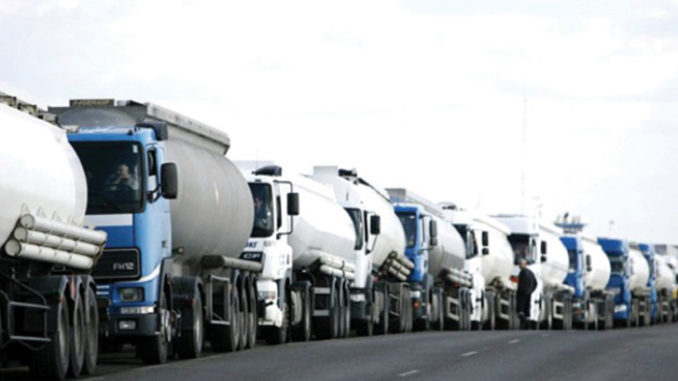
On Tuesday, the Nigerian Midstream and Downstream Petroleum Regulatory Authority (NMDPRA) said it found methanol above national specifications in the imported gasoline. The regulator said efforts to remove the contaminated products from circulation caused long queues at many filling stations.
Methanol, in small amounts, has been capped for a regular gasoline additive.
But damages have already been done to a few automobiles in Lagos due to the high content of methanol in the imported fuel.
On Wednesday, Olumide Adeosun, chairman, Major Oil Marketers Association of Nigeria (MOMAN), said all the vessels that discharged the product, depots and the filling stations that received it had been identified.
Adeosun said two committees had been set up to address the technical and commercial issues, including the compensation.
He confirmed that there were about 136 reported cases of issues with cars at Ardova Plc.
At the end of the federal executive council (FEC) meeting, Timipre Sylva, minister of state for petroleum, said the government would look into possible compensation for Nigerians whose automobiles had been damaged by the contaminated fuel.
But is this the first name Nigeria is facing contaminated fuel crises? No.
TheCable looks at Nigeria’s history with bad petrol.
FOUL FUEL — SANI ABACHA (1997)
In 1997, an offensive odour premium motor spirit (PMS), also known as petrol, was imported into Nigeria during the regime of late General Sani Abacha.
The PMS was “foul fuel”, and it damaged car engines and caused health hazards.
TheCable captured it in 20 things to remember about Abacha.
According to Premium Times’ account, Petroleum Products Marketing Company (PPMC), a subsidiary of Nigerian National Petroleum Company (NNPC), distributed the noisome fuel across major cities despite alarm raised by two major marketers — Mobil Nigeria Plc and National Oil Plc.
The substandard fuel was reported to have been imported into the country by Abbey Court and Glencor.
PPMC later apologised for involving in the importation and distribution of the fuel.
BAD FUEL — UMAR MUSA YAR’ADUA (2008)
In February 2008, Oando delivered 33,000 metric tons of gasoline imported from Gunvor International BV Amsterdam, a commodity trading firm in Switzerland.
After several reports of damaging vehicles, Oando said in a press statement that the fuel was contaminated with ethanol — after confirming with the supplier.
The defunct Department of Petroleum Resources (DPR) passed the product despite regulatory tests and checks at the port — but did not test for ethanol, which is not part of the specification of Nigeria grade for gasoline.
“We asked our suppliers what this material could be, and we were informed that it was ethanol for the first time. We asked for the samples at load port to be retested for the ethanol level and on the 29th of February 2008, we were given a result of 20%,” Oando had said in a statement.
“The fact that the product contained a high content of ethanol was not reflected in the original certificate of quality issued at the load port nor was it revealed to us by the supplier prior to the 28th of February 2008.”
AND NOW OFF-SPEC — MUHAMMAD BUHARI (2022)
In January 2022, petroleum product with methanol quantities above Nigeria’s specification was imported into the country.
Mele Kyari, the group managing director of the NNPC Ltd, said the methanol-blended petrol was imported into the country by a few suppliers through four premium motor Spirit cargoes under its Direct Sales Direct Purchase (DSDP) arrangement.
The DSDP arrangement is part of strategies by the NNPC to ensure a sustained supply of petroleum products in the country.
Kyari said the DSDP suppliers include MRS, Emadeb/Hyde/AY Maikifi/Brittania-U Consortium, Oando, Duke Oil, NNPC subsidiary.
He said all the suppliers of the contaminated petrol had been put on notice for “remedial action”.
END

Be the first to comment